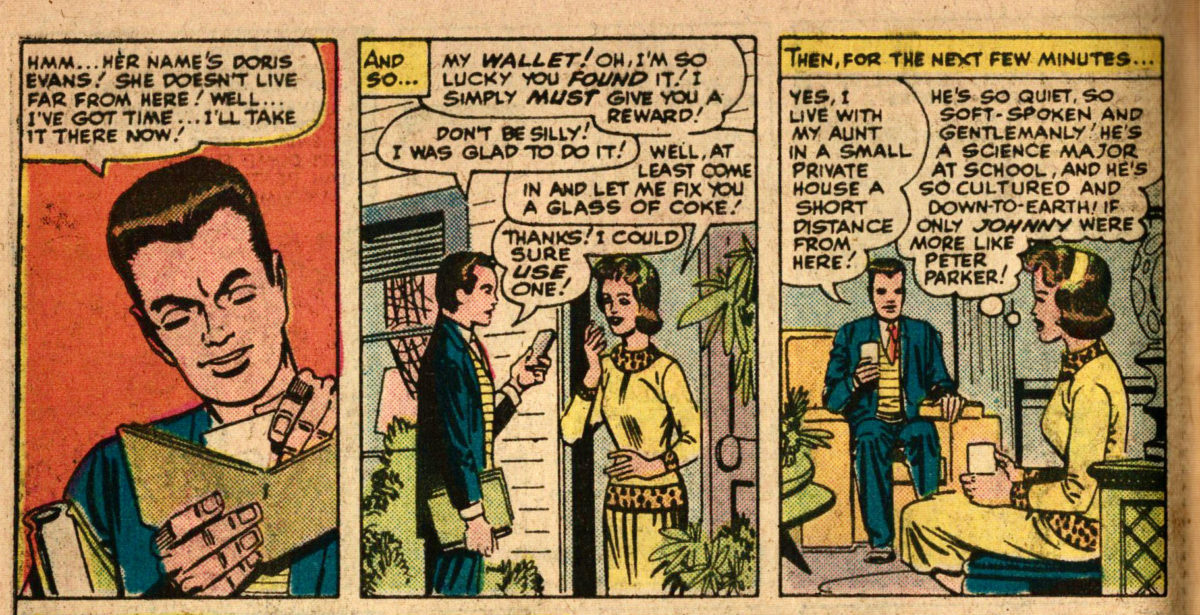Featuring: Thor
Release: March 4, 1965
Cover: May 1965
12 cents
Written by imperial Stan Lee
Illustrated by impregnable Jack Kirby
Inked by implacable Vince Colletta
Lettered by impossible Artie Simek
16 pages
| Previous | #340 | Next |
|---|---|---|
| Daredevil #7 | Reading order | Journey Into Mystery #116, Story B |
| Journey Into Mystery #115, Story B | Journey Into Mystery | Journey Into Mystery #116, Story B |
Colletta graduates from inking the backup stories to the main Thor feature. He will be the Thor artist for a very long time to come. For better or worse. In fact, he will ink the next 52 consecutive Thor stories, and a good many of the next 50 after that over the course of an 8-year run.
We’ll reserve commentary on the his style for now. Let’s spend a few issues taking in this new art style before we try to see how we think Colletta compares to Chic Stone.
Another compelling Thor title. “The Trial of the Gods!”
We’ve known the phrase since we read Avengers #16, which was actually published a week after this, but took place earlier. At least, Thor’s appearance in the story took place before this issue.
Kirby seemed to use the same concept for cover and first page.

I’ve never really understood Odin and never will. Everybody seems to agree he is wise, but his wisdom must be too much for my mortal intelligence to grasp. Thor claims Loki kidnapped Jane to Asgard; Loki claims Thor brought Jane to Asgard because he loves her. Who is lying? The God of Thunder or the God of Lies?
Only one way to find out, says Odin. The Trial of the Gods!
Continue reading “Journey Into Mystery #116”








































